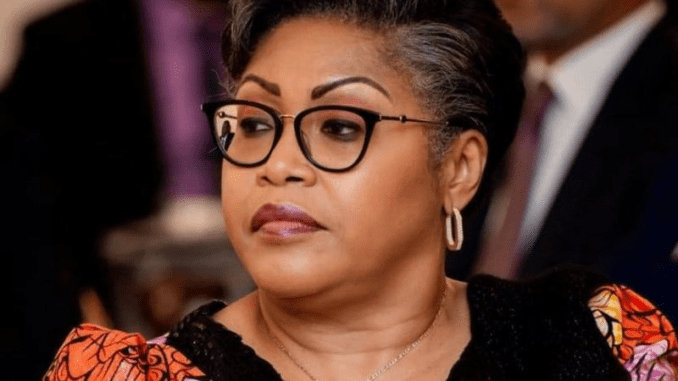
Judith Suminwa Tuluka, the planning minister for the Democratic Republic of the Congo, was named the country’s first female prime minister on Monday by state television.
The “task is big, the challenges are immense but together… we will get there,” Tuluka declared on national television.
“I understand that I have a big responsibility,” she continued, expressing her desire to work “for peace and development” so that the “Congolese people” may profit from the nation’s wealth.
In the December election, Tshisekedi officially won with 73.47 percent of the vote, and in a nation long plagued by violence and instability, the ballot was passed quite amicably.
The opposition called for a mock ballot. Due to administrative snags, voting was officially prolonged by one day, and in isolated regions, polls remained open for days beyond.
More than 90% of the seats in parliament were won by Tshisekedi’s party, which made it easy for him to pass laws.
For the country of over 100 million people, the new prime minister will have to advance the president’s stated goals of jobs, youth, women, and national cohesion.
As Tshisekedi took office in 2019, he campaigned on a platform of bettering living circumstances and ending 25 years of violence in the east of the Democratic Republic of the Congo (DR Congo), a country rich in minerals but with a population that is primarily impoverished.
Although Tshisekedi ran for a second term on accomplishments like free primary medication, he made little progress toward fulfilling those promises.
The DR Congo, one of the world’s poorest nations, has experienced internal displacement of about seven million people due to conflict, according to the UN.
In North Kivu province, where the Rwandan-backed rebel organization M23 has taken control of large areas of land over the past two years, the security situation has gotten worse.
The M23 insurrection resumed its armed campaign in late 2021 after an eight-year hiatus. They captured vast areas of eastern North Kivu province and, in early February, closed off all land access to Goma save for the Rwandan border route.
The country’s deteriorating health conditions, including the devastation caused by cholera, measles, mpox, anthrax, and plague, were also highlighted by the World Health Organization last month.
The WHO noted that violence, climatic shocks, displacement, poverty, and malnutrition are making the health situation worse and demanded an immediate increase in financing.
Some 15,000 UN troops deployed in the DRC started to withdraw at the end of February, at the request of the Kinshasa government. You have till the end of the year to finish the withdrawal.
Leave a Reply